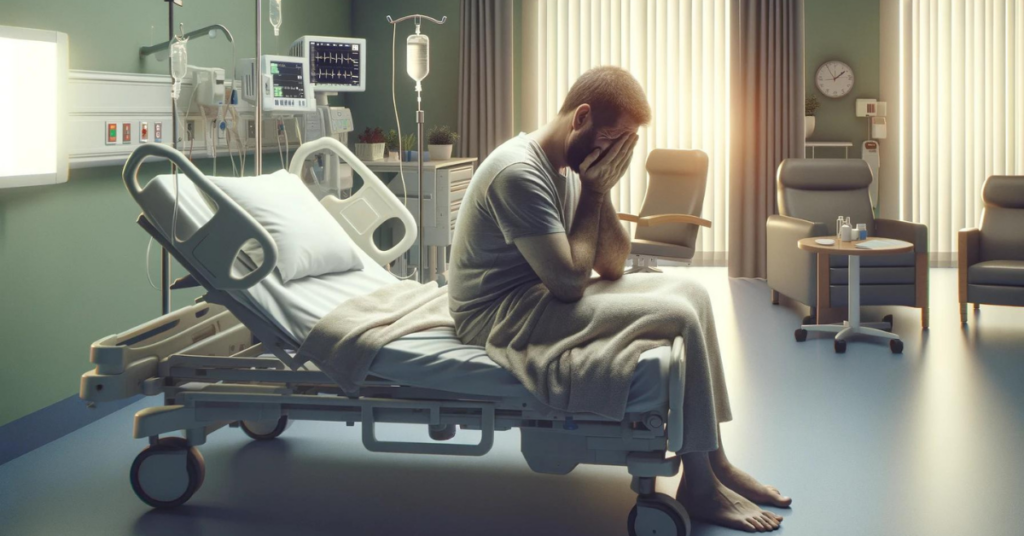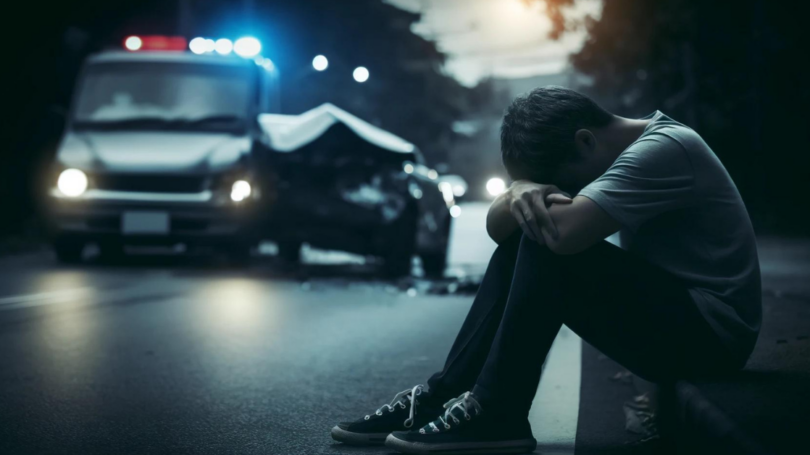After a car accident, many individuals experience emotional trauma and shock, which can significantly impact their mental health and well-being. According to Psych Times, common responses include anxiety, depression, and even post-traumatic stress disorder (PTSD). The prevalence of PTSD following a car accident can vary widely, with estimates ranging from 6% to 45% of survivors developing this condition.
The journey to recovery is personal and can be complex, but understanding that emotional reactions are a normal response to such traumatic events is an important first step. For anyone struggling with trauma after a car, know that seeking professional help is a sign of strength and an important part of the recovery process.
This blog will provide essential insights on how emotional trauma can affect your life after a car accident. Also, we will explore why consulting mental health professionals, exploring coping strategies, and seeking legal help significantly aid in your recovery process.
Understanding Emotional Trauma Post-Car Crash
Following a car accident, individuals may experience an onslaught of emotions such as shock, grief, fear, and anger. It is often the quiet and prolonged emotional trauma that poses greater difficulties. Those who survive serious accidents might struggle with enduring psychological discomfort and trauma after a crash—symptoms reflective of PTSD—that can last from weeks to months.
PTSD shows itself through:
- Persistent feelings of distress
- Tendencies toward self-isolation
- Elevated alertness
- Recurring unwanted thoughts
Such symptoms can surface immediately following the accident or develop later on. They usually lessen over a few months. Understanding these emotional states is crucial for advancing toward healing.
Identifying Signs of Emotional Distress
Recognizing the indicators of emotional trauma after being involved in a car accident is necessary. Experiencing emotional distress can manifest as:
- Variations in mood
- Anger outbursts
- Ongoing stress and anxiety
- Aversion to driving
- Development of new fears and phobias linked to the traumatic event
When these symptoms start to obstruct one’s routine, it may be suggestive of more profound mental anguish.
If such common symptoms begin to show, they could escalate into post-traumatic stress disorder. It’s critical for individuals who notice persistent or intensifying signs that disrupt daily activities to seek timely professional help.
Aftermath of a Car Accident
After a car accident, the priority is ensuring personal safety and securing the scene. Once immediate safety is confirmed, help others if needed and, if possible, move the vehicles to a safer spot. Next, it’s important to:
- Exchange insurance and contact information with everyone involved.
- Take photos of the damage for evidence.
- Report the accident to the police and notify the Department of Motor Vehicles if necessary.
These actions help simplify later interactions with insurance companies and any legal issues that may arise during recovery.
Handling Urgent Medical Needs
A medical check-up after a car accident is essential, even if you don’t feel pain immediately. Shock or adrenaline can mask injuries that might be internal, making it critical to have a thorough evaluation by healthcare professionals to detect and treat any hidden injuries from the accident.
After your initial health assessment, keep monitoring any injuries. Avoid physical activity while swelling is present, and wait for your doctor’s approval before starting exercises again. Once approved, exercises that focus on core stability can help heal your spine and enhance your overall recovery.
Securing Your Vehicle and Personal Belongings
After a car crash, securing your personal and valuable items is important to prevent theft or loss during recovery. If you can’t retrieve these items immediately, arrange a schedule with law enforcement or towing companies to ensure their safe collection. These steps will provide peace of mind, allowing you to focus on your physical and mental recovery.
Path to Mental Recovery

Seeking expert help is essential if symptoms of post-traumatic stress persist for weeks or months following an accident. Therapeutic methods such as Cognitive Behavioral Therapy (CBT) and Neuro-Linguistic Programming (NLP) can aid those with PTSD in altering detrimental thought processes tied to operating or being a passenger in a vehicle after an incident.
Constructing coping mechanisms and establishing a robust network of support are also critical components on the path to healing from mental trauma. These measures can assist in controlling anxiety, diminishing stress, and mitigating the emotional distress associated with recollections of the traumatic event.
Engaging with Professional Help
Should you find yourself struggling to recover from the emotional distress caused by a car accident, it is recommended that you seek out a qualified mental health professional. These experts may employ techniques like exposure therapy and eye movement desensitization to assist in overcoming the psychological impact.
Involvement with a skilled therapist can equip you with practical methods for confronting your trauma, controlling apprehension, and carving out steps toward healing. The assistance of such professionals can simplify what feels like an overwhelming process into one that’s far more navigable.
Developing Coping Strategies
Developing coping strategies can be a lifeline in managing the emotional distress following a car accident. Some helpful coping strategies include:
- Journaling: This can be useful for processing emotions, identifying triggers, and tracking anxiety symptoms or negative thought patterns.
- Deep breathing exercises: These can signal the body to relax, helping manage acute anxiety while driving.
- Distractions: Engaging in activities like listening to music or podcasts can direct thoughts away from anxiety.
These strategies can help you navigate the emotional challenges that may arise after a car accident.
Moreover, adjusting the vehicle’s settings to the driver’s liking can contribute to a sense of control and comfort, thereby mitigating feelings of anxiety when behind the wheel. These coping strategies can empower your recovery journey, giving you control over your emotions and reactions.
Building a Support System

Emotional backing from one’s social circle is critical in recovery following a vehicular accident. The presence of friends for reassurance, motivational boosts, and offering different viewpoints can diminish the burden of emotional distress.
Indeed, having such supportive relationships markedly reduces the likelihood of succumbing to post-traumatic stress disorder while enhancing mental well-being among those already struggling with this traumatic stress condition.
Cultivating robust networks for personal support can lead to feelings of validation emotionally and foster a comforting sense of community—both vital elements that aid in healing. It’s important not to avoid seeking solace in your close connections. Their steadfast emotional support often becomes an integral part of your pathway through the recovery process after experiencing significant post-traumatic stress.
Legal Considerations and Seeking Compensation
If you’re involved in a car accident in Nevada, there are several legal considerations and steps you should be aware of:
- Reporting the Accident: Nevada law requires you to report any car accident that results in injury, death, or property damage. If the police do not investigate the scene, you must file a report with the Nevada Department of Motor Vehicles within 10 days.
- Insurance Claims: Nevada follows a “fault” system for car accidents, meaning the person responsible for the accident is generally accountable for the damages. You can file a claim with your insurance company or the other driver’s insurer or pursue a personal injury lawsuit to recover damages.
- Statute of Limitations: In Nevada, you have two years from the accident date to file a lawsuit for personal injury. The limit for property damage claims is three years. You must act within these time frames to avoid recovering any compensation.
- Comparative Negligence: Nevada uses a modified comparative negligence rule. This means if you’re found to be partially at fault for the accident, your compensation may be reduced by your percentage of fault. However, you cannot recover compensation if you’re more than 50% at fault.
- Medical Payments (Med Pay): Although Nevada is not a no-fault state, drivers may opt to purchase Medical Payments coverage. This can cover medical expenses regardless of who is at fault in the accident.
- Dealing with Insurers: After an accident, exchanging insurance information with the other driver is important. When filing a claim, be cautious about discussing fault or how you feel; stick to the facts to avoid statements that could be used against you.
- Legal Assistance: It may be beneficial to consult with an attorney specializing in personal injury or car accident law, especially if there are significant injuries or disputed liability. An attorney can help navigate the complexities of insurance claims, negotiate settlements, and advocate on your behalf in court if necessary.
Road to Recovery and Legal Support After a Car Accident
Surviving a car crash is only the beginning. The subsequent journey involves healing, recovery, and adjusting to new realities. This path can be lengthy and demanding but manageable with the proper support and resources. You need a support system, seek professional help, and employ coping strategies. Self-care and legal advice are also crucial. Remember, you are not alone.
Legal matters following a car accident can be challenging. Consulting with Temple Injury Law in Las Vegas is the first step to helping you with your case. Our firm specializes in personal injury and can provide the guidance needed to understand your legal options and manage claims processes. We represent your interests, explain your rights, and help ensure you receive fair compensation. Schedule a consultation with us today.

Jeff Temple focuses his practice in the area of personal injury. As a skilled personal injury attorney, he handles a broad range of cases including motor vehicle accidents, premises liability, and wrongful death. He is a graduate of the Radford University, he later attended the University of Miami School of Law and studied abroad at University College London. Upon graduating, Jeff relocated to Las Vegas and founded Temple Injury Law in 2022.

